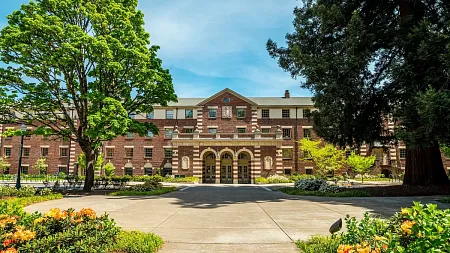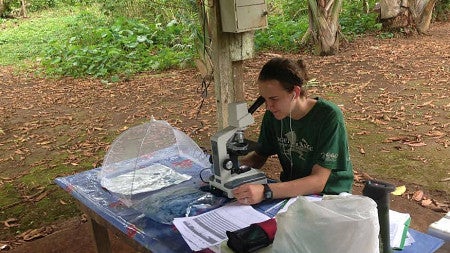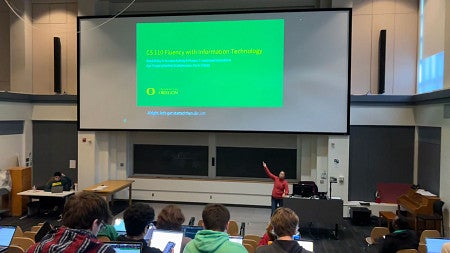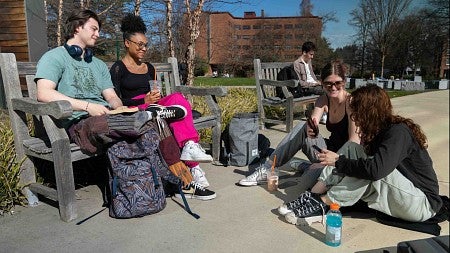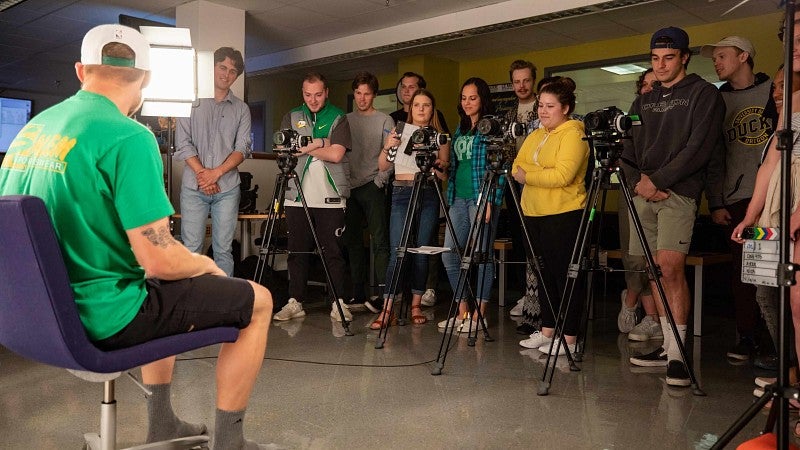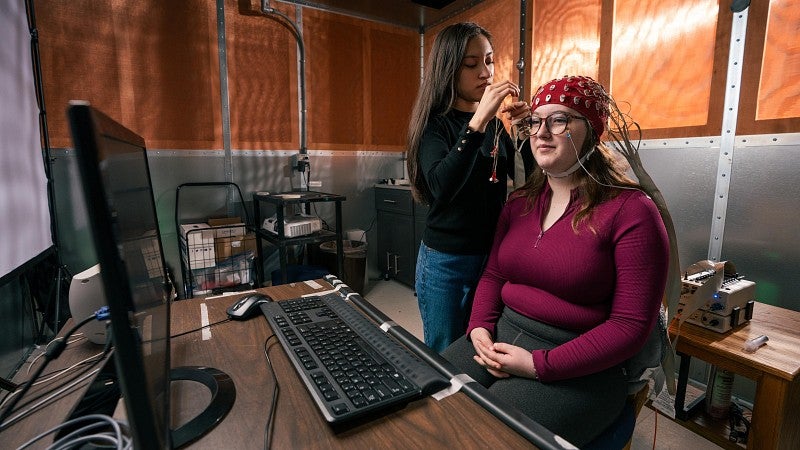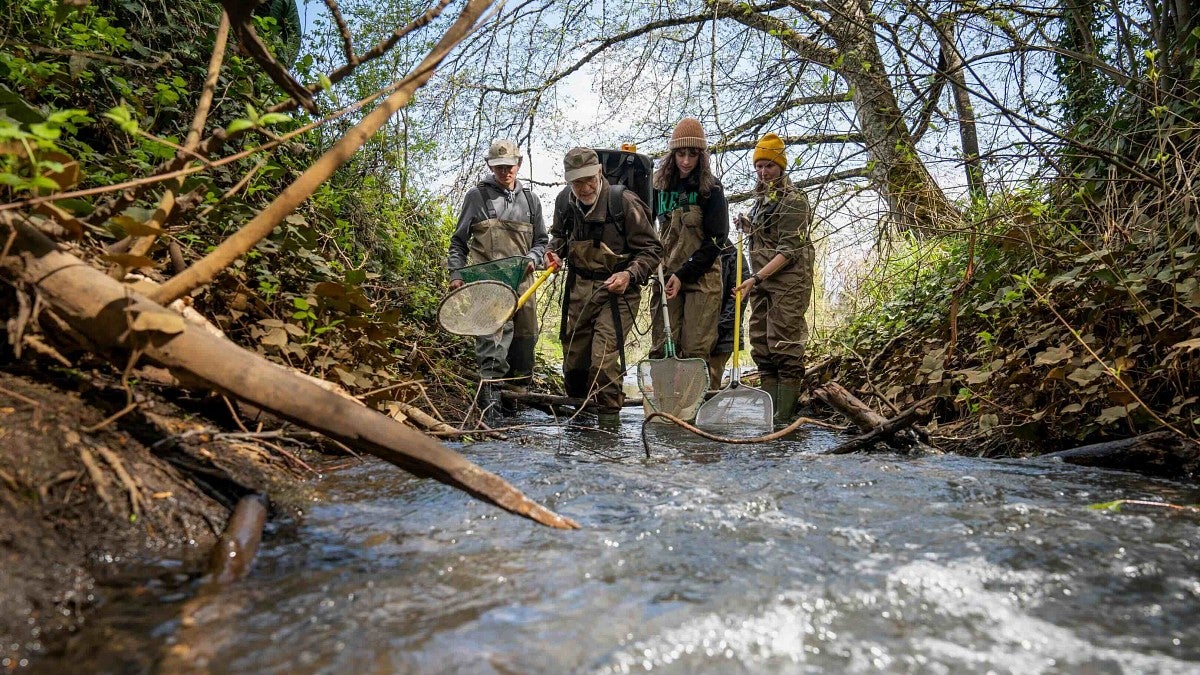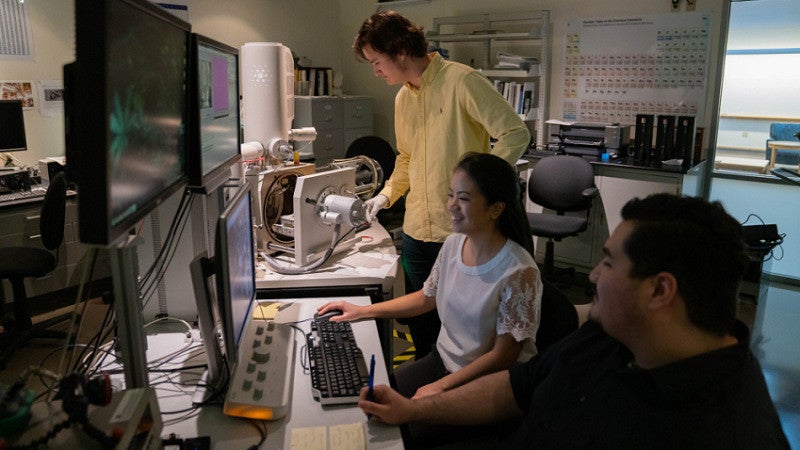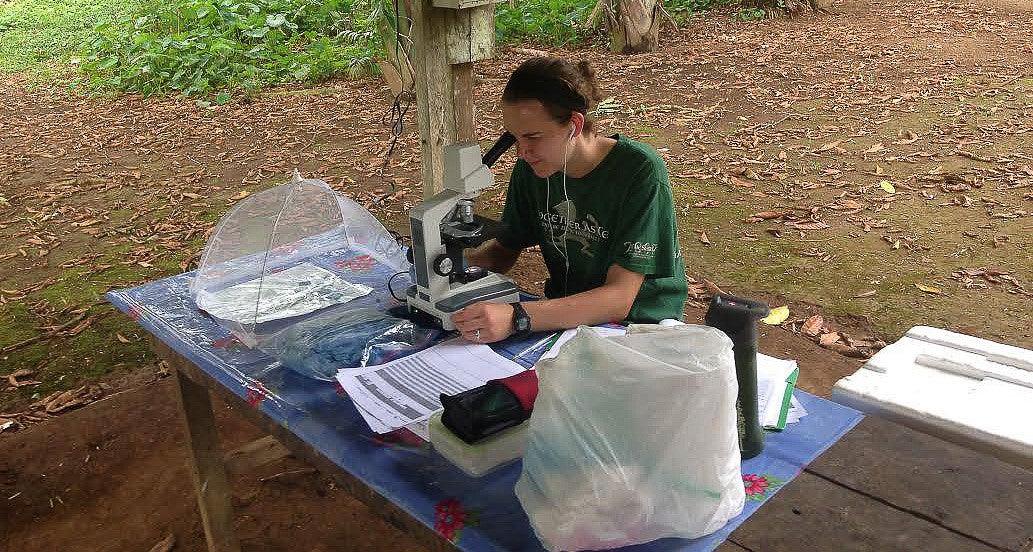
The Amazon Research Experience of a Lifetime
With many options for graduate school, Theresa Gildner ultimately chose the University of Oregon College of Arts and Sciences for its anthropology department because of its strong opportunities for fieldwork and the chance to publish impactful research under the mentorship of expert faculty members, such as Professor Josh Snodgrass.
As an anthropology doctoral student, Gildner worked orked in the Shuar Health and Life History Project, a long-running collaboration with a South American Indigenous tribe in southeastern Ecuador founded by Anthropology Professor Larry Sugiyama. It was an opportunity that took her to the Amazon, where she got experience conducting ethical field research. After graduating in 2018 with her PhD, she continues to apply what she learned as a Duck as a faculty member at Washington University in Missouri.
“The foundation for how I think about research was built at Oregon,” Gildner said. “The questions I’m asking now grew directly out of the training and collaborations I had there.”
News from CAS
All news »
We Love Our Supporters
Gifts to the College of Arts and Sciences can help our students make the most of their college careers. To do this, CAS needs your support. Your contributions help us ensure that teaching, research, advising, mentoring, and support services are fully available to every student. Thank you!
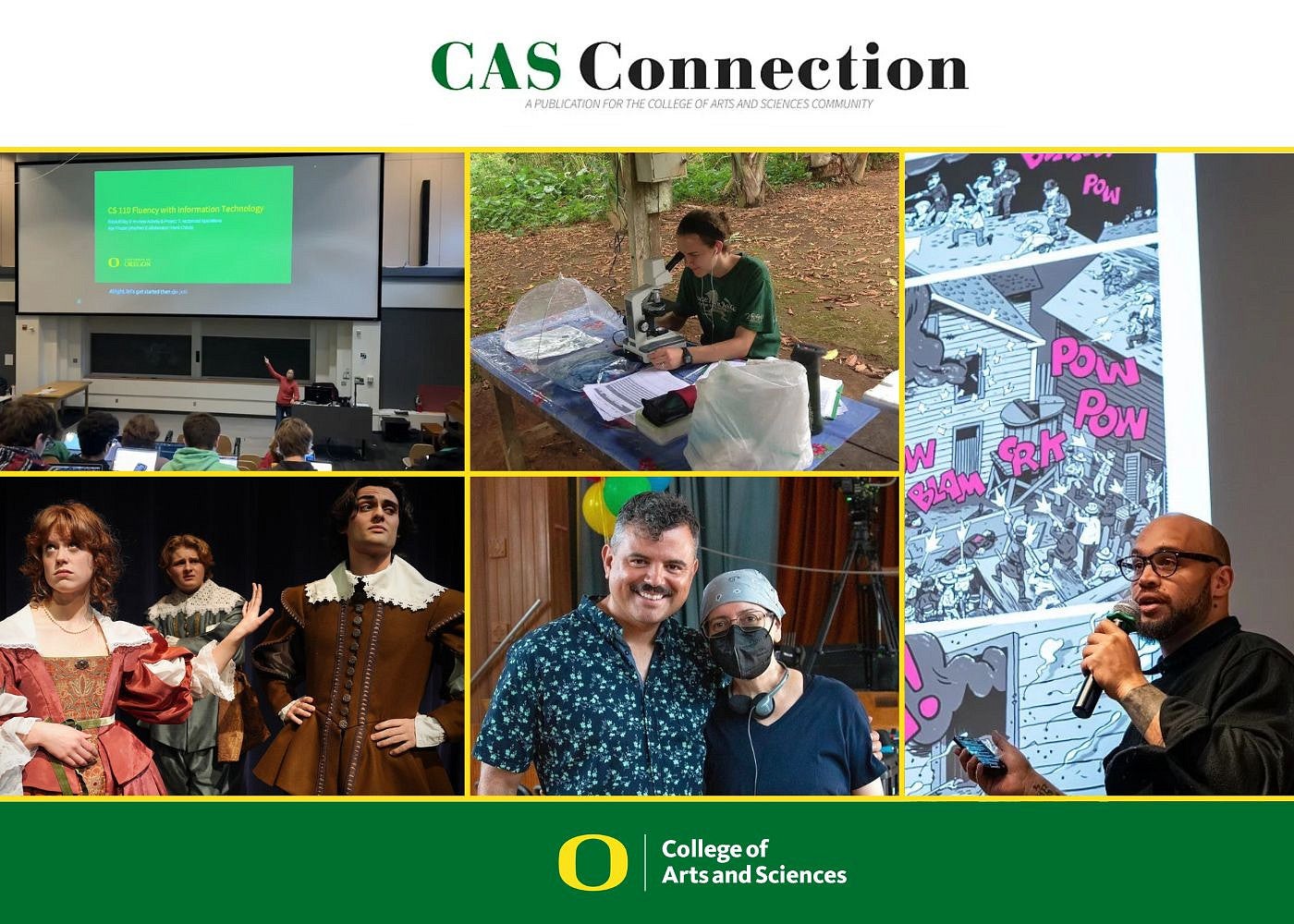
What’s Happening in CAS?
What happens when the food pyramid gets flipped? Schnitzer School of Global Studies and Languages Assistant Professor Hannah Cutting-Jones dives into the new food pyramid announced by the US Department of Health and Human Services, and the impacts of the new guidelines.
Also in the February CAS Connection issue, read how a two-year prestigious Oregon fellowship is bringing a professor's visions to life, an alum who is a tenure-track faculty member at Washington University continuing research she did at the UO, a 100-level computer science course teaching AI — and more.
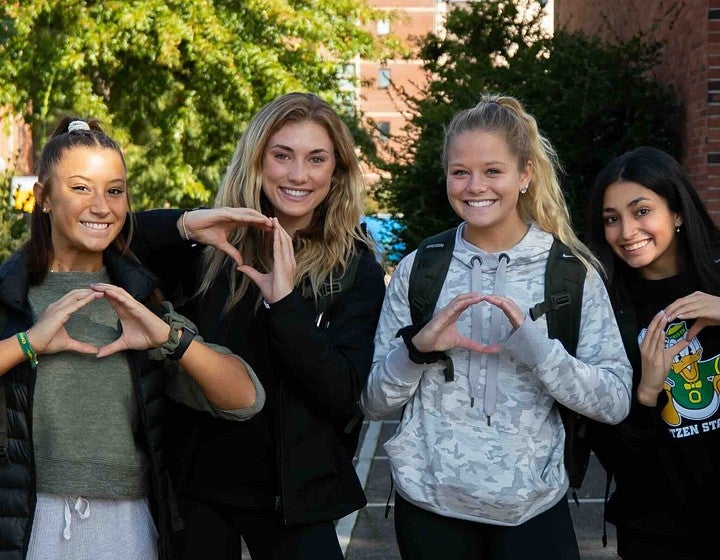
Undergraduate Studies
Wherever your academic goals eventually take you at the UO, all Ducks begin their journey with foundational courses in CAS. More than 60 percent of students go on to pursue a major in a CAS department or program. With more than 50 departments and programs, there’s an intellectual home for almost any interest, talent, or career aspiration.
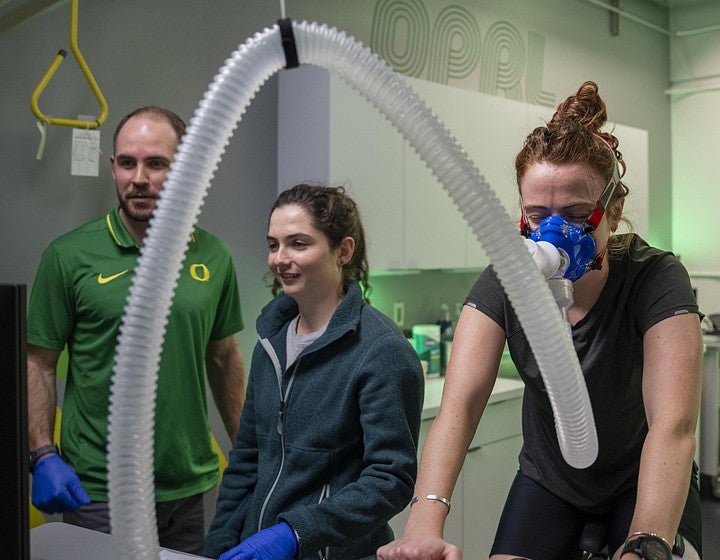
Graduate Studies
The College of Arts and Sciences offers more than 30 master's programs and more than 20 doctoral programs across a diverse range of disciplines. Both as contributors to research teams and through their own scholarship and teaching, our CAS graduate students are indispensable to the vitality of the UO academic mission.
Student Support Services
We provide our students with a variety of resources to help you thrive inside and outside the classroom. Through Tykeson Advising, we provide comprehensive academic and career advising from the start of your journey at the University of Oregon. Learn about career preparation and get assistance in selecting the very best classes. Connect with labs, libraries, IT and tutoring. Find your community on campus.
World-Class Faculty
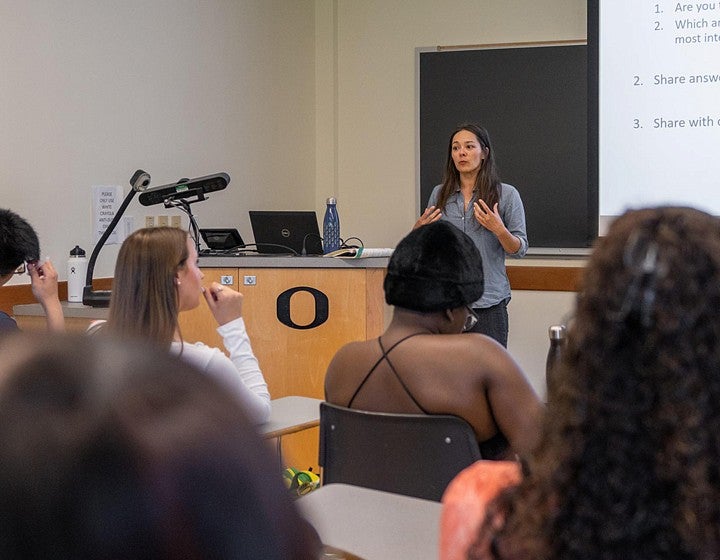
The College of Arts and Sciences faculty members are a driving force of the high-output, high-impact research activity that has earned the UO membership in the prestigious Association of American Universities (AAU). Our world-class faculty members are inspiring teachers.
Among them are five members of the American Academy of Arts and Sciences, four members of the National Academy of Sciences. They are committed to helping students discover their academic passion. Every day, they work to expand students’ intellectual horizons, preparing them for life after college with real-world knowledge and skills.
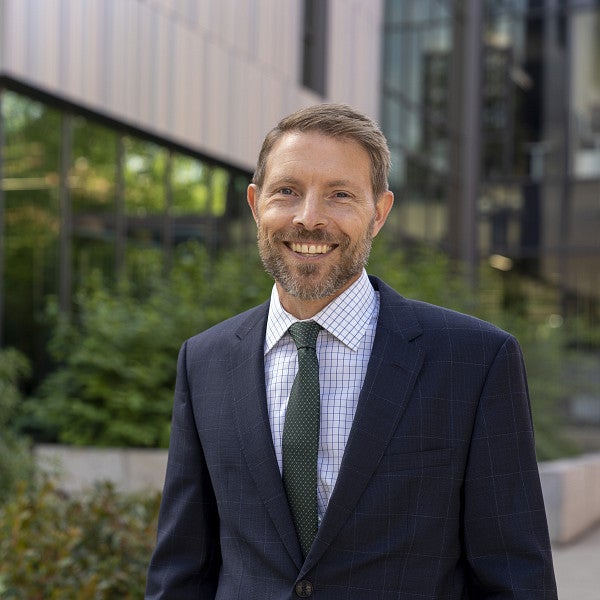
Meet our Dean
In the College of Arts and Sciences (CAS), we are committed to excellence in research and teaching, student success, and diversity, equity, and belonging.
A liberal arts education—one that offers a breadth of intellectual approaches and perspectives and depth in a major discipline—is the foundation to a purposeful life as a life-long learner, engaged citizen, and leader. The skills you will learn here—from written and verbal communication to analytical and quantitative reasoning, to compassion and understanding—are those that employers seek and will open the door to a wealth of opportunities.
You will find more than 50 majors and a multitude of minors within CAS, and seemingly endless opportunities for personal exploration and discovery. Whether you are an incoming first-year student, a grad student or a transfer student, you can map an exciting future and be part of a fun, warm, engaged liberal arts community here. Come join us. And go Ducks!
The College of Arts and Sciences includes:
Happening at CAS
2:00–4:00 p.m.
From Jan. 21 and continuing until March 18, the Northwest Native American Language Resource Center (NW-NALRC) will be holding weekly consultation and assistance times.
From 2-3pm PST we will be providing consultation and assistance with Community Projects and Planning.
From 3-4pm PST we will be providing consultation and assistance for Supporting Language Teaching and Learning.
To join, please fill out this short form https://forms.office.com/r/D2pg3wErfj.
If you are in need of assistance, or if you have any questions, please contact nalrc@uoregon.edu.
4:00–5:00 p.m.
Learn how Job Shadow Day can help you build your network, explore careers, and boost your professional profile. This info session will cover the application process, timeline, and tips for making the most of this opportunity to spend a day with a local employer.
4:00–5:00 p.m.
Learn how Job Shadow Day can help you build your network, explore careers, and boost your professional profile.
Join us to learn about UO's Job Shadow Day, happening Friday, May 15. It’s a unique opportunity to spend a day alongside local professionals and explore potential career paths and job roles in areas like education, health, sustainability, arts, business, government, and more.
At this info session where you’ll learn:
- What Job Shadow Day is and how it works
- How to apply and get matched
- What to expect during your shadow experience
- Tips for making the most of your day
Job Shadow Day is a low-pressure, high-reward opportunity to:
- Experience a unique, behind-the-scenes look at industries and roles of interest
- Explore career paths you may not have considered
- Build professional connections
- Envision how your skills and passions can play out in the world of work & community
- Learn more about Eugene/Springfield and ways to engage!
✨ Job Shadow Day spots are limited; come find out how to apply and get matched!
contact careerlab@uoregon.edu with questions.
6:00 p.m.
Filmlandia Screening Series presents: Property (1978). Free and open to the public.
Directed by Penny Allen | 92 min. | Not rated
Synopsis: A group of likeable eccentrics whose sense of their own culture sparks them to try to buy up their houses from developers. Contradictions abound. Affectionate comic sense deftly captures the afterglow of a generation.
The Department of Cinema Studies and the University Film Society celebrate Oregon’s rich film heritage with a new screening series showcasing movies with a unique Oregon connection—from locally shot features to stories written or directed by Oregon filmmakers. Discover Oregon’s reel legacy on the big screen while connecting with the university film community.
Cosponsored by: Harlan J. Strauss Visiting Filmmaker Endowment; Department of Comparative Literature; Department of English; Department of Indigenous, Race, and Ethnic Studies; Native American and Indigenous Studies; Folklore and Public Culture Program; Art House Theater; DUX Present; and Oregon Humanities Center’s Endowment for Public Outreach in the Arts, Sciences, and Humanities.

